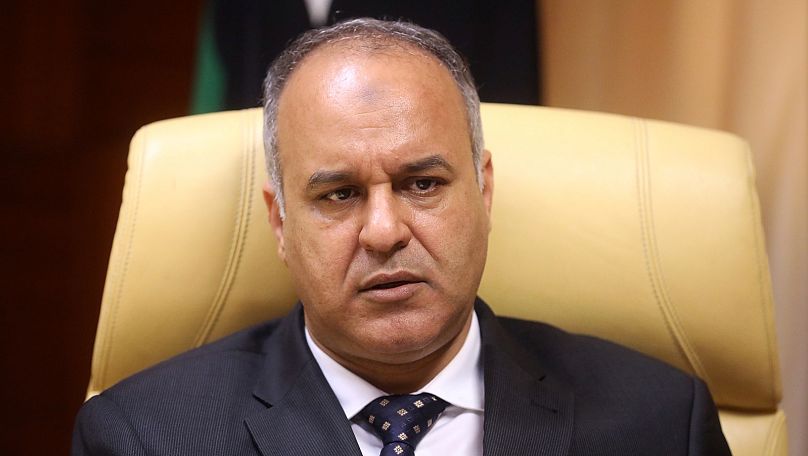Libya’s fragile economic gains thwarted by the unnecessary war ǀ View
Opinions expressed in View articles are solely those of the authors.
When the internationally-recognized Government of National Accord (GNA) was formed in Libya in December 2015, it was facing an enormous amount of work to restore the country’s social fabric and rebuild its devastated economic structures.
The violence that ensued since the toppling of Moammar Ghaddafi had undermined Libyan oil production, significantly damaged the country’s infrastructure and eaten into its foreign exchange reserves which had fallen from their peak of $124 billion in 2012 to $79.4 billion in 2017. As the new government scrambled to cover security expenses arising from a long, complex conflict, there was little left to support development or to re-establish growth foundations.
Despite that, the GNA produced significant, but fragile economic progress for Libya, which is now threatened by the sudden attack last month on Tripoli by the militias of accused war criminal Khalifa Haftar.
Ali Abdulaziz Issawi
Minister of Economy of Libya
Ali Abdulaziz Issawi
Minister of Economy of Libya
At the time I was appointed as Minister of Economy last October, the country’s outlook – an OPEC member with the largest proven oil reserves in Africa – was at best uncertain. Libya’s state institutions were weak and conflict-enabled profiteering from state resources was common across the country. Inflation had escalated to 32.8 per cent in 2018, and public debt had reached its highest level of LYD 63bn (USD 45bn) in December 2018.
It was abundantly clear that for there to be any hope of a political and security resolution, it would need to coincide with meaningful economic progress across Libya that would provide alternative livelihoods for the many armed Libyan youth across the country.
In September 2018 the GNA’s Presidential Council and Libya’s Central Bank took several immediate – and difficult – steps to correct the economy’s ills and steer it towards growth.
Chief among them was imposing a 183% fee on hard currency transactions in September 2018 that effectively devalued the Libyan dinar, closing a gap between the official and black-market exchange rates. This opened access to foreign currency to a wider range of market participants while making life difficult for nefarious actors who had exploited the rate discrepancy for their own gains. In addition to taming inflation, the move generated additional revenues to the state budget of USD 12bn, an amount which is expected to nearly double by the end of 2019.
The government also restructured and strengthened several key state institutions, including the Ministry of the Economy and Commerce, to ensure they are better equipped for the implementation of economic and fiscal reforms. We established a supportive framework to incentivize the development of the private sector and the creation of public-private partnerships – with the primary goal of encouraging diversification of the Libyan economy and attracting investment to its infrastructure sector. Meanwhile, the government initiated the creation of the Libyan Competition and Antimonopoly Council to ensure fair competition and equal opportunities in the Libyan market.
By early 2019, the GNA’s new economic policy was at last showing encouraging results. Supportive of the government’s reform drive were the relative stability and improved security in the second half of 2018 that led to a long-awaited increase in oil output. Production levels exceeded 1 million barrels per day by the end of 2018 and reached 1.2 million barrels in March of this year. We were on track to achieve projected GDP growth of 7.2 per cent in 2019.
The unprovoked military aggression on 4 April against Tripoli and the western region by Haftar’s militias, however, has halted the government’s reform program and created a dangerous setting for a protracted resource war that could lead to full-scale economic devastation.
This sudden freeze on Libya’s fragile economic progress should be alarming for the international community that needs a stable Libya for several reasons, oil being one of them. European refineries are heavily dependent on Libyan crude, foreign states have vast economic interests in our country’s oil industry, and a disruption to Libya’s output can quickly and negatively affect prices for consumers around the globe. Reckless actions such as militarization of airports and oil ports put at immediate risk Libya’s oil production – a major contributor to the OPEC output.
The economic destruction does not only impact the global system; oil revenues provide a critical lifeline for the people of Libya. Haftar’s aggression has already caused significant material losses placing additional pressure on the Libyan budget and disrupting supply routes of necessary goods to the country.
Most importantly, the strikes are claiming lives of innocent Libyan civilians – with casualties standing above 500 and the number of wounded and injured exceeding 2,000. It’s a welcome development to see the International Criminal Court stepping in and members of the U.S. House of Representatives calling on their Justice Department to investigate Haftar’s crimes.
In time, large natural resources and vast investment opportunities will help fund Libya’s democratic transition and economic recovery, opening the country to foreign direct investment and private sector engagement. The initial groundwork for this has already been laid out.
But for now, putting an immediate stop to the Haftar’s bloody and reckless coup attempt is the most urgent, necessary course of action for all of Libya’s domestic and international stakeholders.
Ali Abdulaziz Issawi is Minister of Economy of Libya.
____________
Are you a recognised expert in your field? At Euronews, we believe all views matter. Contact us at view@euronews.com to send pitches or submissions and be part of the conversation.

No comments:
Post a Comment